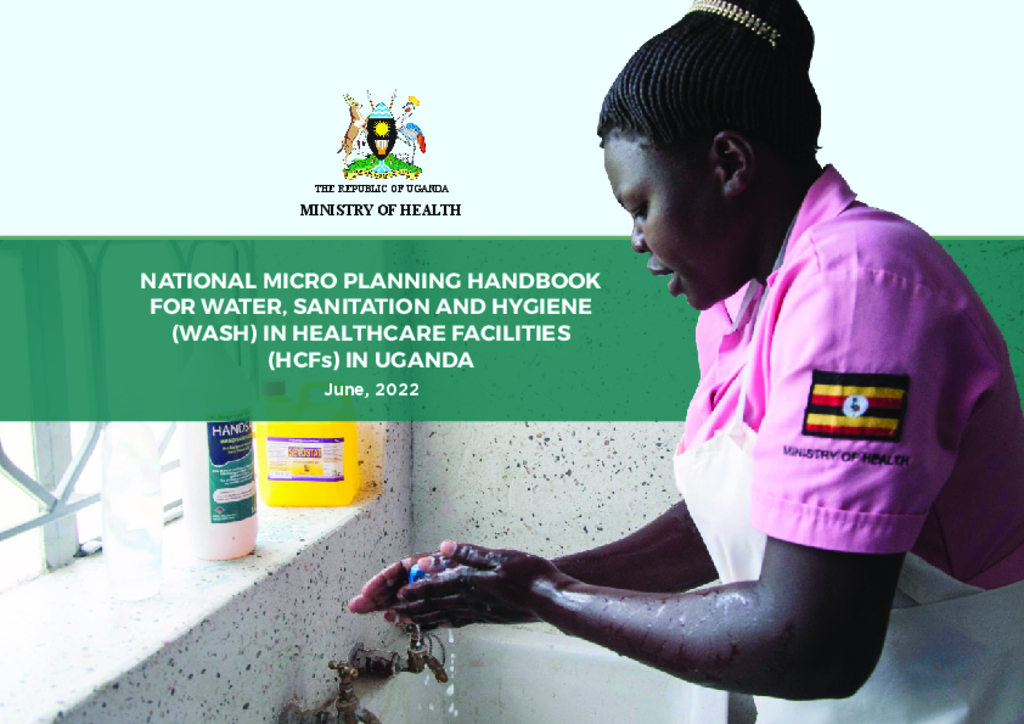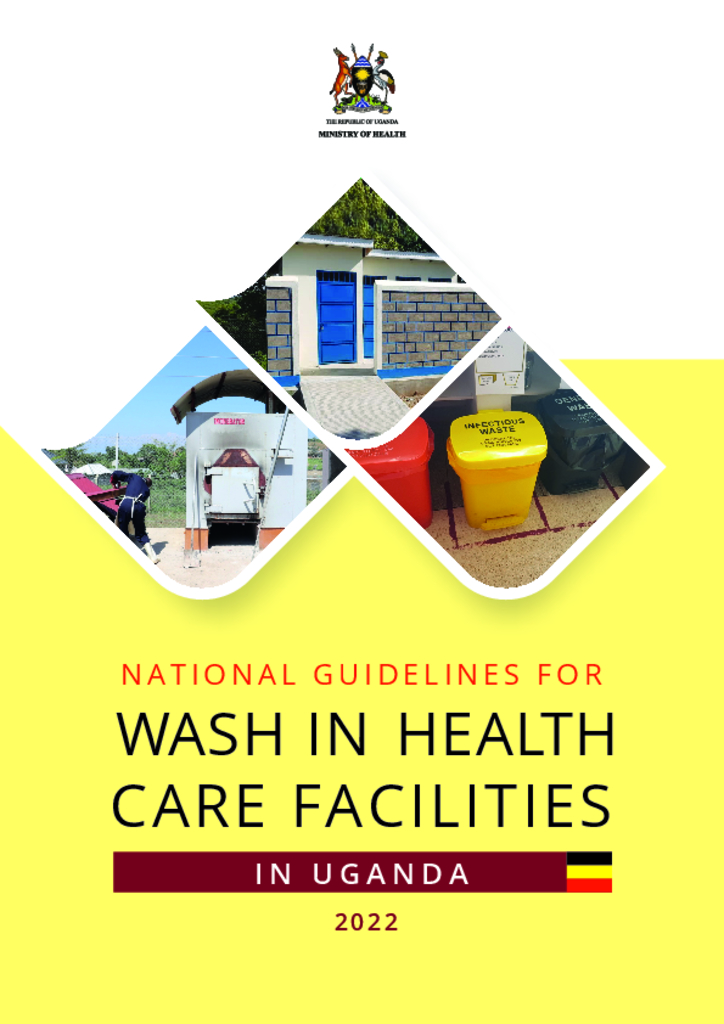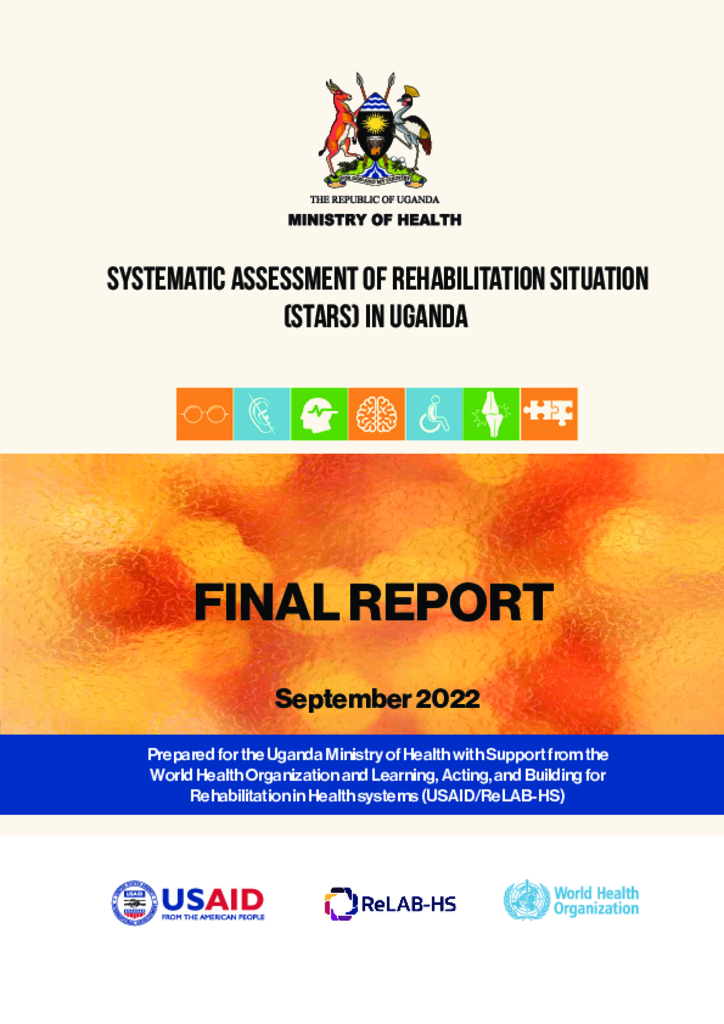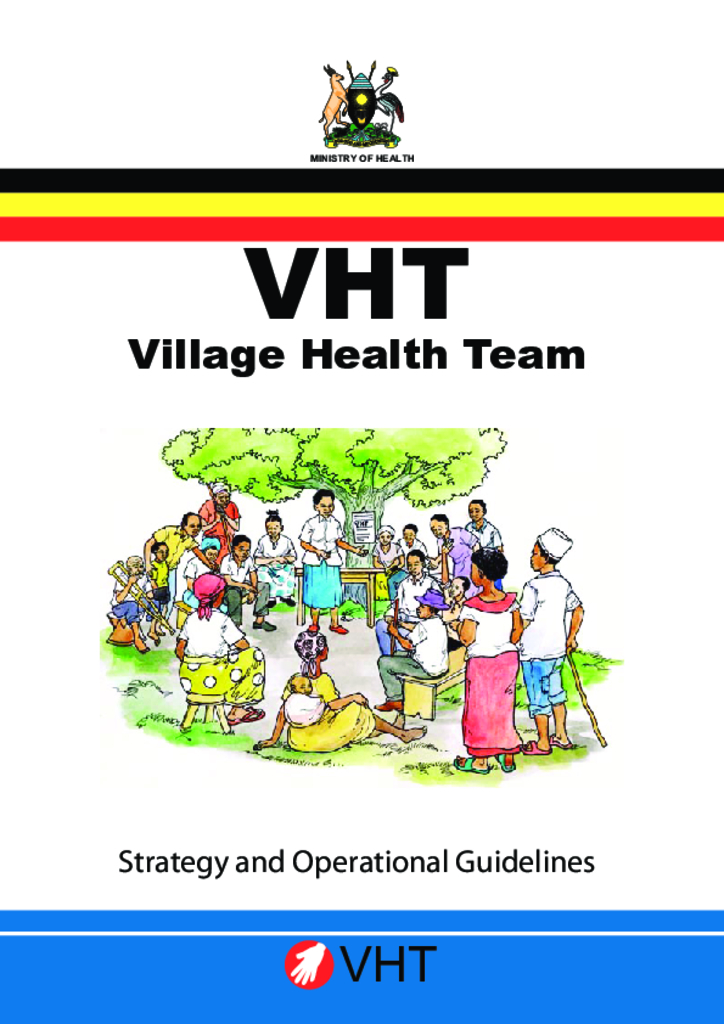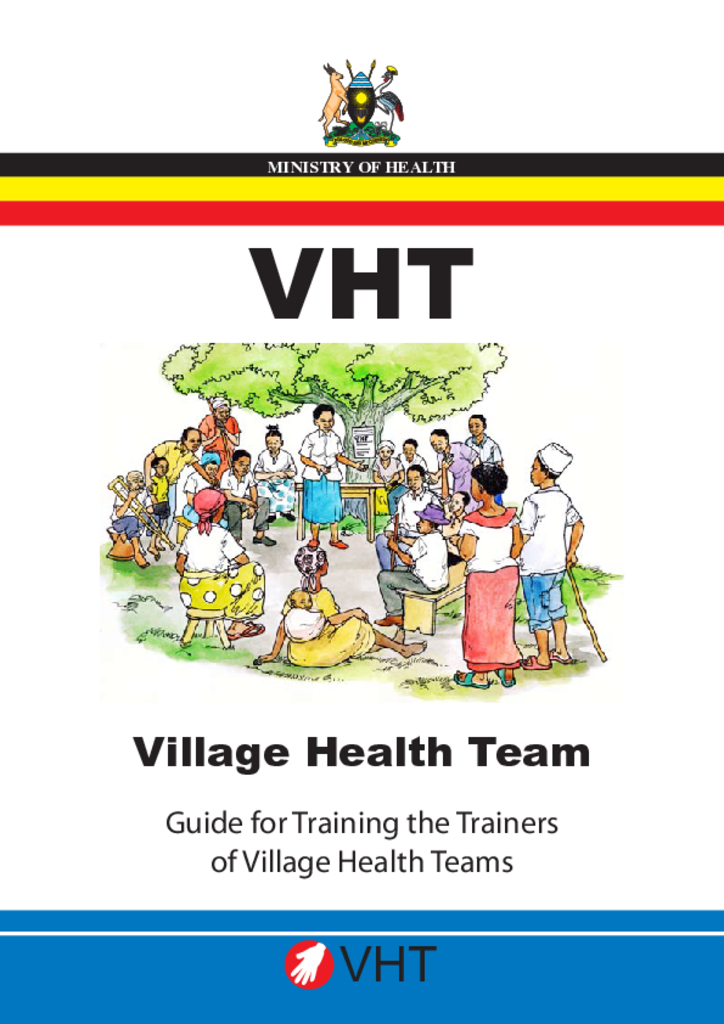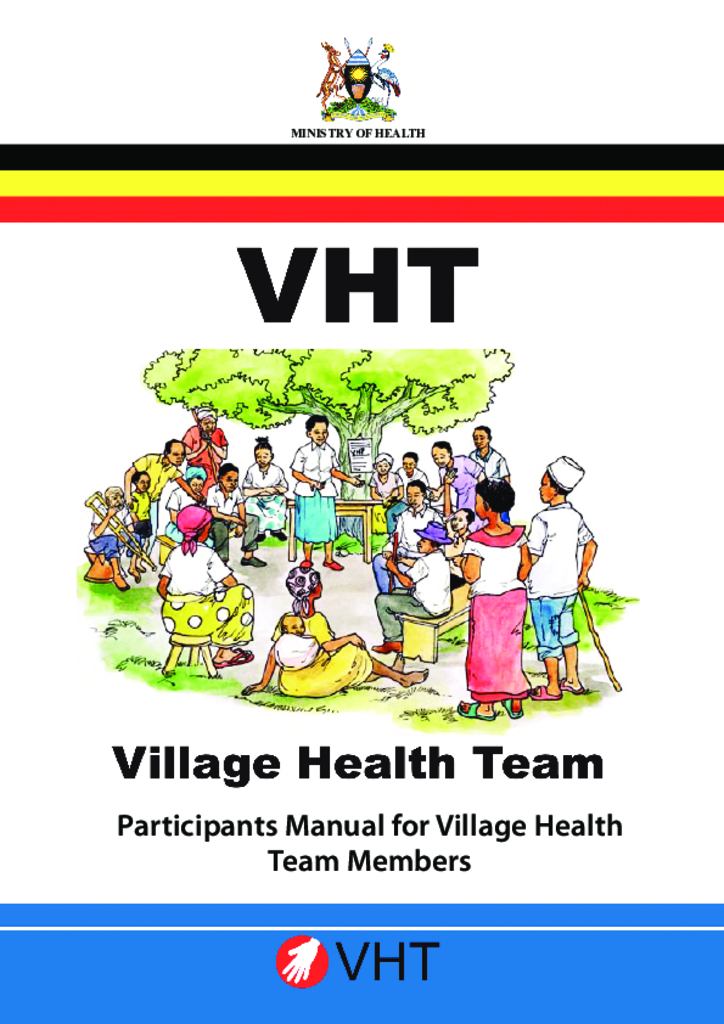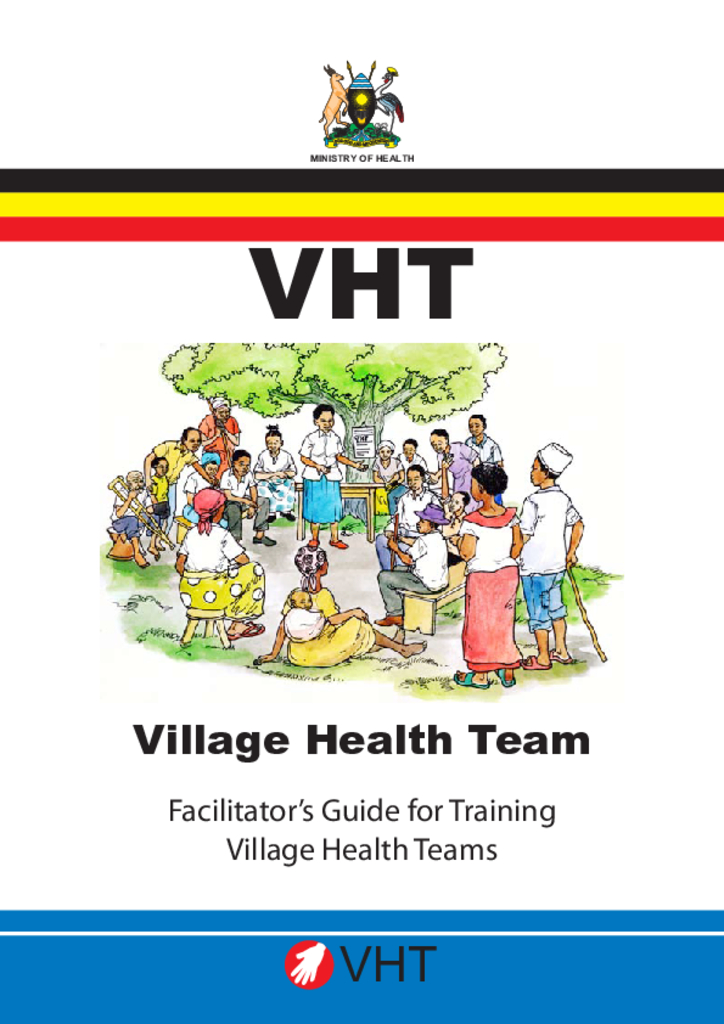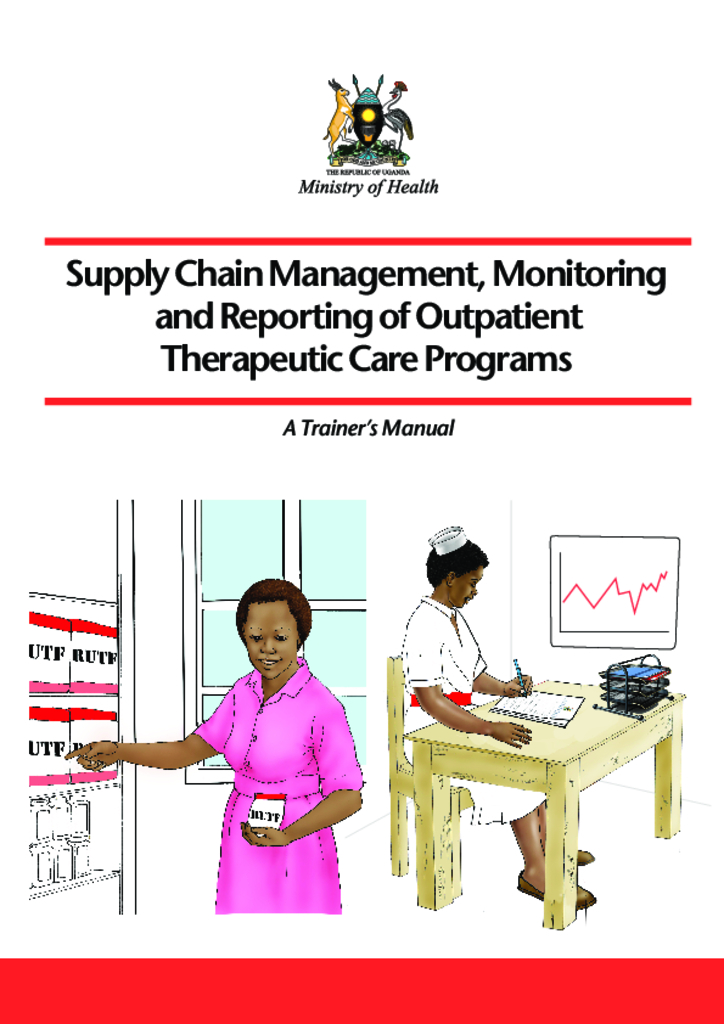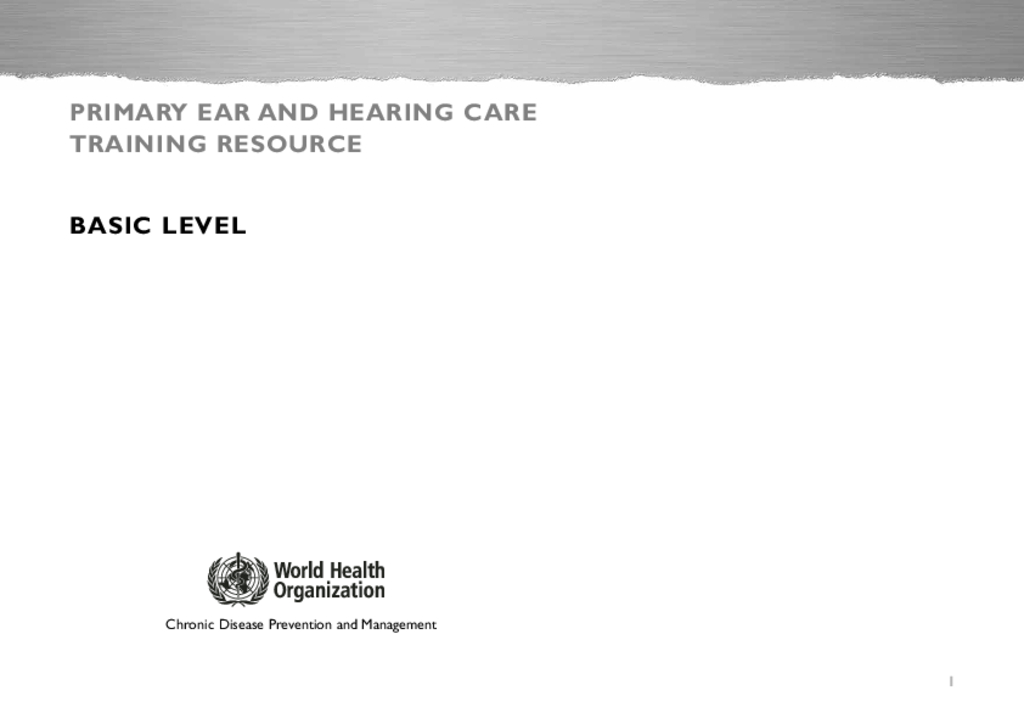The Ministry of Health recognizes that access to safe water, sanitation and hygiene (WASH) in health facilities is critical in the reduction of diseases, improved occupational health, more efficient health care services, improved staff morale and performance. The micro planning data generated will guide line ministries, local government authorities and development partners to position WASH in the health care facilities agenda within the Water and Health sectors. Additionally, it will support the development of a roadmap for achieving WASH-related sustainable development goals for health institutions.
The Sustainable Development Goals (SDG) 3 and SDG 6 reinforce the need to ensure adequate WASH services, which will result in a reduction in maternal mortality, ending preventable newborn deaths, and providing quality universal health coverage. The rationale of the WASH guidelines is to document procedures and provide a framework for strategic planning, implementation of functional and effective WASH services in healthcare facilities in Uganda. These guidelines offer a basis for creating the minimum conditions required for providing healthcare services in a healthy environment for healthcare workers, patients and visitors to the healthcare premises. They also serve as a tool for monitoring the performance of WASH in health care facilities.
This STARS in Uganda report, presents a comprehensive analysis and report on the national assessment of the rehabilitation and assistive technologies system in Uganda that was guided by the WHO Systematic Assessment of Rehabilitation Situation (STARS) approach.
The Uganda Functional Difficulties Survey (UFDS) 2017 was conducted by the Uganda Bureau of Statistics (UBOS) with the Ministry of Gender, Labour and Social Development (MGLSD) to generate information and data on persons with disabilities in Uganda to inform planning, budgeting, implementation, monitoring and reporting on disability.
The World report on vision seeks to stimulate action in countries to address these challenges by proposing integrated people-centred eye care (IPCEC) as an approach to health system strengthening that builds the foundation for service delivery to address population needs
In response to this situation, the World Health Assembly (resolution 58.23 on “Disability, including prevention, management and rehabilitation”) requested the World Health Organization (WHO) Director-General to produce a World report on disability based on the best available scientific evidence. The World report on disability has been produced in partnership with the World Bank, as previous experience has shown the benefit of collaboration between agencies for increasing awareness, political will and action across sectors.
Village Health Teams (VHTs) were established by the Ministry of Health to empower communities to take part in the decisions that affect their health; mobilize communities for health programs, and strengthen the delivery of health services at house-hold level.
The Ministry of Health is implementing the Village Health Team (VHT) strategy to ensure that every village in Uganda has capacity to mobilize individuals and households for better health. VHT members are community volunteers who are selected by communities to provide correct health information, mobilize communities and provide linkage to health services. As part of the process of scaling up the implementation of this strategy in Uganda, the Ministry and partners decided to develop Trainers of Trainee (ToT) guide to act as a training resource for VHT trainers of trainees
In each home, parents and guardians are very important because it is the family that puts into practice the daily care actions that are needed to be healthy and stay healthy. These actions include: Wash hands with soap before eating and after using the latrine
The guide offers a training methodology that will facilitate your work in preparing VHT members for the work they will do. This methodology will help them develop the skills required for their very important mission. The training should be carefully planned, and well organized. Handling adult learners requires knowledge, care and experience to give the VHT the skills needed to carry out their tasks.
OTC provides home-based treatment and rehabilitation for clients who are severely, acutely malnourished but have appetite and are free of medical complications. This session will describe issues including criteria for entry and exit, activities in the OTC, link with other Care and planning and setting up OTC.
The purpose of this basic level training resource is to assist with the training of primary ear and hearing workers in developing countries, especially focused on Village Health Care Workers. The role of the village health care worker is vitally important for the prevention of ear and hearing disorders. An important role for the trained village health care worker is to help the patient, family and community to understand common ear diseases and hearing loss.Through this training resource, the village health care worker will be taught when to refer the patient for treatment and support. This resource covers basic methods for prevention and recognition of common ear disease and hearing loss. It also shows that, with understanding and the necessary support, people with hearing loss can play productive roles in the household, school or in the work place.
